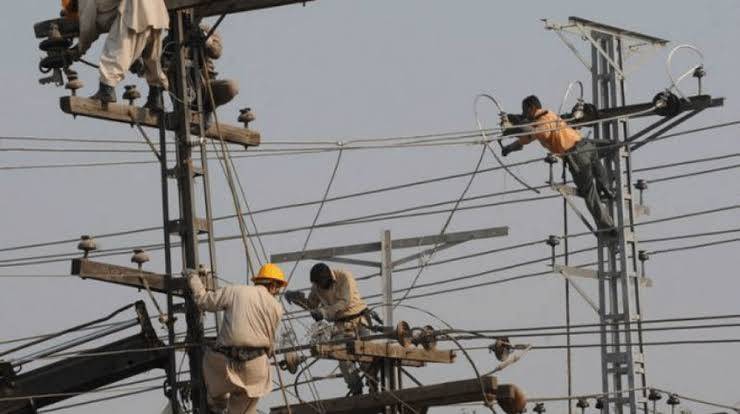A new revelation has come to light about electricy theft crackdown
Shares

In Lahore, an intelligence agency's investigation into power theft and substantial line losses, amounting to billions of rupees across various electricity distribution companies (Discos) in the country, has exposed a concerning lack of modern tools and training among the staff to combat power theft.
All electricity supply companies, including Lesco, employ clip-on meters capable of measuring electricity amperage but incapable of detecting electronic devices within the meter responsible for stealing electricity.
Advanced software for electricity theft exists, with many controlling the modern chips in the meters through remote means. Electricity thieves have managed to install these modern chips inside the meters, sometimes with the involvement or tacit approval of staff from these electricity supply companies.
The report reveals that private electricians and electrical engineers are responsible for installing these chips in meters, often linked to remote controls. When there's a risk of a raid by an electricity supply company team, electricity thieves can remotely activate the previously turned-off meters.
Many factories, industries, and homes now have CCTV cameras monitoring the movements of these raiding teams, and in some cases, Disco staff themselves inform industries about upcoming raids. The staff lacks training to identify these hidden chips within the meters. Some meters installed by Discos are swapped with dummy meters bearing the same serial number in homes and businesses.
These dummy meters are closely monitored every few days, and the original meters are replaced shortly before readings are taken, resulting in significantly lower recorded electricity consumption and reduced bills. Large industries have their electricity meter readings taken by Exens or SEs.
While some Discos have started installing AMR meters (Automator Reading) at industries, connected to SIM data for officer oversight, many older connections still remain susceptible to theft through traditional methods. The report identifies several factors contributing to line losses, including excessively long 11KV lines, faulty conductors, damaged transformers, lengthy LT lines, subpar materials, and transformers being overloaded beyond their capacity.
Maintenance and repair of transformers are often outsourced to private workshops, lacking facilities for oil dehydration and proper maintenance. Non-standard copper winding quality in transformers also plays a significant role in losses. Many Discos' subdivisions have far exceeded their intended capacity, with over 50,000 to 60,000 customers, yet a severe staff shortage persists.
Corruption remains prevalent, with consumers charged substantial amounts for new connections, benefiting staff who lead lavish lifestyles and enroll their children in expensive private schools.
The report concludes that corruption persists, with exorbitant fees for changing three-phase industrial meters, which typically involve staff cooperation. Union officials appear more focused on shielding their corrupt practices rather than advocating for staff protection and legitimate facilities, causing employees to fear speaking out, and their legitimate demands often go unaddressed.
